Juventud Rebelde 221
Tribute to Cuban mothers

Tribute to Cuban mothers from Pabexpo + Photos
This Friday the Art Fair for Mom, which is open until May 13, extends to all provinces of the country.
A CubaNews translation. Edited by Walter Lippmann.

At 11 a.m. on Friday, April 26, 2019, the National Crafts Fair dedicated to mothers was inaugurated at Pabexpo. Author: Maykel Espinosa Rodríguez Published: 26/04/2019 | 03:11 pm
More than 200 artists are present at the XIV edition of the Art Fair for Mom, sponsored by the Fondo de Bienes Culturales, which takes place every year in the Cuban capital and other provinces of the country, prior to the celebration of Mother’s Day.
This Friday was officially inaugurated at the Pabexpo exhibition center, the event, which this time also pays tribute to the 500th anniversary of the foundation of the village of San Cristóbal de La Habana.
Mercy Correa Piñero, director of FCBC’s National Crafts Center, emphasized in her words of welcome to guests, journalists, and the general public, the significance of the national scope of this 14th edition of Arte para Mamá, the second to reach all the Fund’s affiliates in the country, published by ACN.
Outstanding Cuban singer Annie Garcés and her group animated the event with the interpretation of well-known themes such as Mauricio Figueiral’s conga Agua; Todo natural, by Adrián Berazaín; and Tú me amas, by Andy Villalón.
In around 600 exhibition spaces, visitors can find artistic and cultural promotions from all over the country, including crafts, textiles, ceramics, handcrafted furniture, footwear, goldsmith’s pieces, Arte en Casa products and different works of art and literature.
Representing the Cuban cultural industry are the Empresa de Grabaciones y Ediciones Musicales (EGREM), the Distribuidora Nacional del Libro, Génesis Galería and the Instituto Cubano de Arte e Industria Cinematográfica (ICAIC).
The fair will be open every day until Saturday, May 11, from 10:00 a.m. to 7:00 p.m., except Wednesday, May 1, in rooms B and C of the venue.
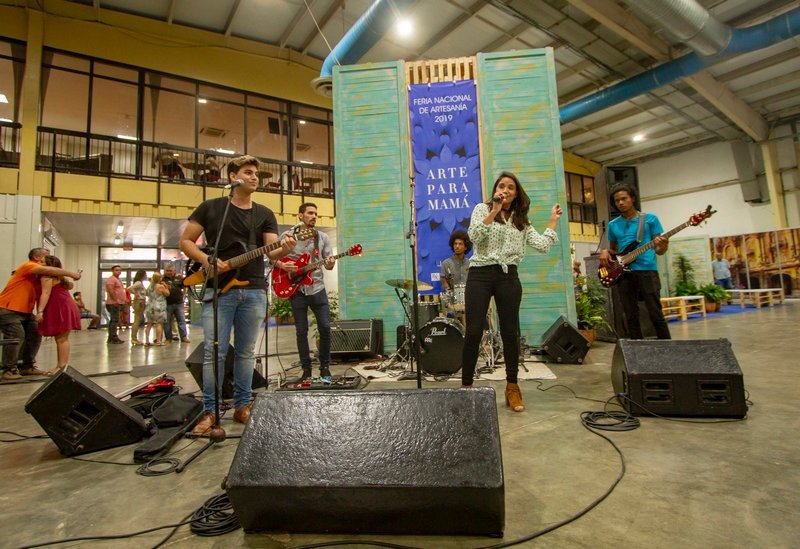
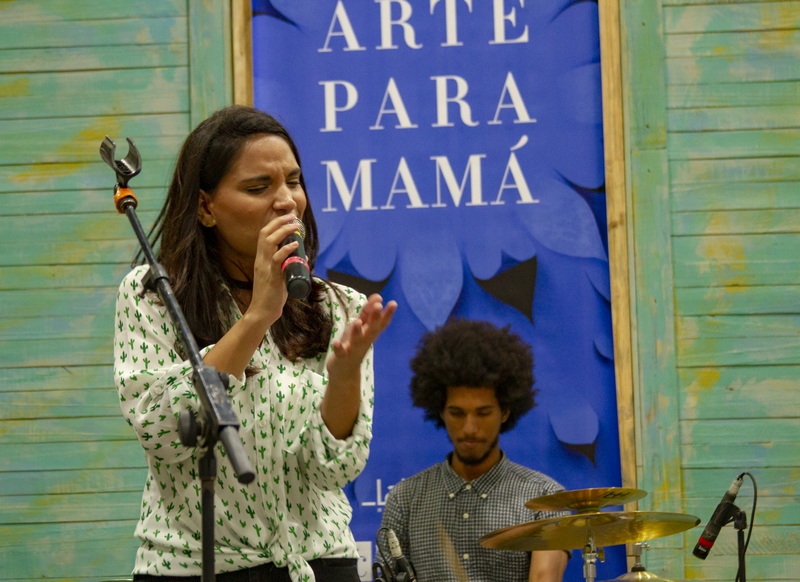
With the presentation of the young artist Annie Garcés, the National Craft Art Fair for Mom was inaugurated.
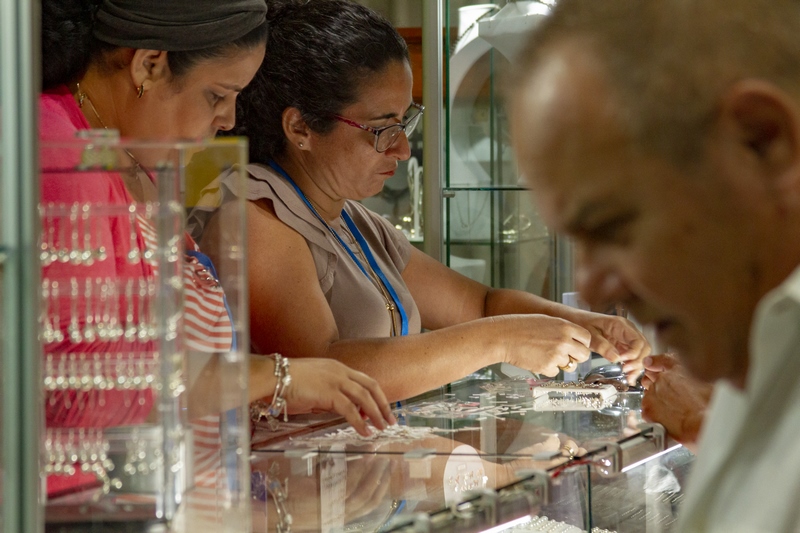
Visitors to the fair found a wide variety of high quality craft products.

Crystal rattles, very popular among admirers of Cuban craftsmanship.

Necklaces, chains, earrings and other accessories made of silver reaffirm the skill of Cuban goldsmiths.


Table, wall and ceiling lamps dazzle with an exquisite workmanship.
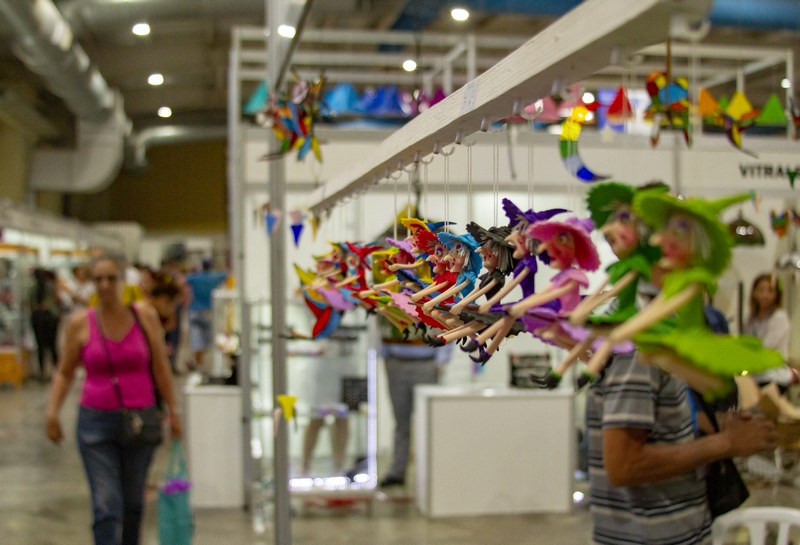
The traditional witches could not be absent from a craft fair.
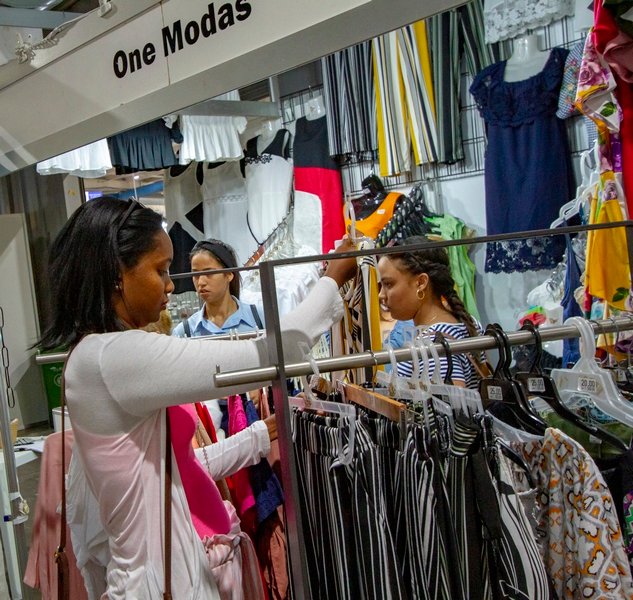


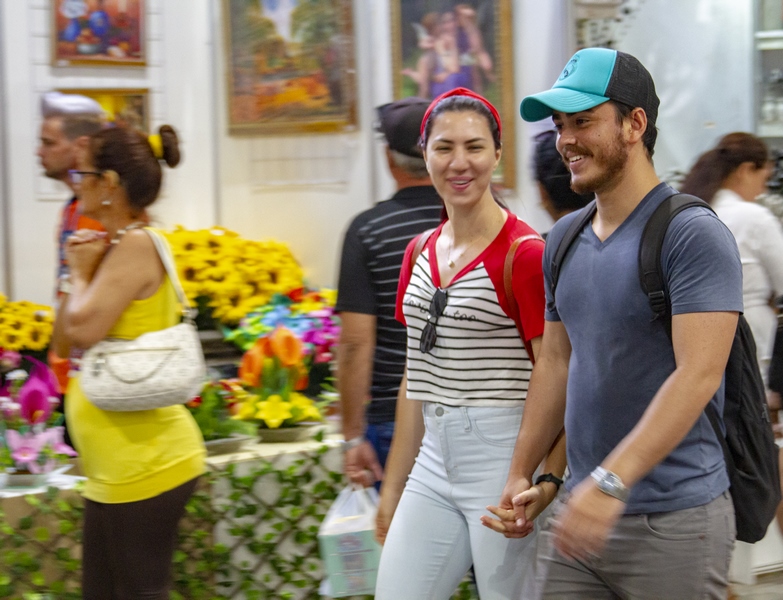
Young people are looking for items that meet their demands in terms of fashion and quality.
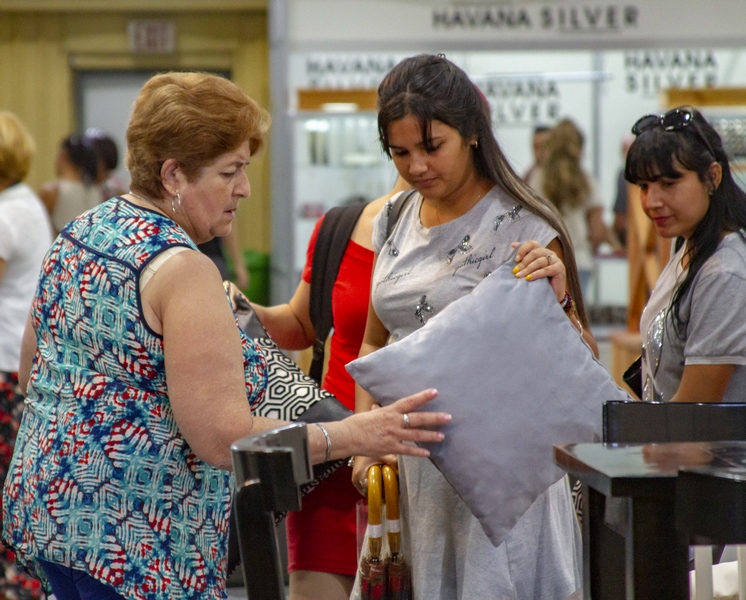
For all tastes.

Furniture for all home spaces.
Photos: Maykel Espinosa Rodríguez
I don’t “fit” in the group

I don’t “fit” in the group
Juventud Rebelde shares the testimony of a Camagüeyan teenager who suffered harassment and abuse in her school and needed the specialized accompaniment of the psychologist to overcome the complex situation.
By Olga LIlia Vilató de Varona
digital@juventudrebelde.cu
Published: Thursday 18 April 2019 | 09:05:39 am.
A CubaNews translation.
Edited by Walter Lippmann.
 CAMAGÜEY: It is usually very pleasant to talk with a little girl; however, I confess that on this occasion it was not. The subject of bullying (bullying, no matter the term) hurts. I promised her and her grandfather, who accompanied her, that I would not publish her name for various reasons. I asked her to call me, nothing about you.
CAMAGÜEY: It is usually very pleasant to talk with a little girl; however, I confess that on this occasion it was not. The subject of bullying (bullying, no matter the term) hurts. I promised her and her grandfather, who accompanied her, that I would not publish her name for various reasons. I asked her to call me, nothing about you.
Daniela, that’s what I’ll call her, when she’s only 13 years old and in 8th grade. She’s lived through undesirable moments for anyone, especially at an age when illusions abound, but they can even fall into anguish. I came to her story because she had gone through a therapy group for teenagers, led by José Eduardo Vázquez Benítez, a graduate in Psychology and Defectology.
-Tell me how the discomfort began, how did you get to such a hard trial?
-I started to suffer from this problem in the 7th grade, because I was the one who didn’t fit into the group. Another thing was that another little girl was considered the best and from that moment on, I surpassed her in Chemistry and Physics and everything began. Now I think it was because I was a student, I got good grades and I never “blew” on others in exams.
“They called me crazy, scared and a lesbian, the latter because I didn’t have a boyfriend. Especially the “scared” and also the “punctualita”, for that TV series.
-Did you tell the teacher and the director? Did they take action?
-Yes, the teacher scolded them sometimes, but they didn’t change. The principal found out, but she didn’t do anything and, luckily, she’s gone. Now we have a director who has taken care of me; he’s the one who changed my group.
-Did you tell your parents?
-Of course, they began to realize that something was happening to me, I told them and then they went to school.
-But you stayed in the same school…
-Yes, although I wanted to go to another one, my mother and my grandparents advised me that I should face problems and not run away, because it was something that could happen to me somewhere else and I wasn’t always going to [be able to] escape.
-How did the family support you in the face of this unpleasant event, besides taking you to the psychologist?
-They helped me a lot. In fact, they gave me affectionate advice and accompanied me to group therapies, where we talked about our problems, we opened up, we all did it. It gave me the strength to continue.
-Did your academic performance drop as a result of these difficulties?
No, because I have continued to study and make an effort, and I plan to do my pre-university studies in the Vocational [program].
-How would you describe the suffering caused by the rejecting attitudes you received?
-Like something big, I suffered a lot; I wasn’t used to mistreatment, I cried every day, and I was terrified to go back to the classroom. In my home, they love me very much. I have three brothers and thanks to their advice and that of my whole family we asked for help from the specialist.
-Are you doing well in the new group?
-Better. There is more discipline, I have more girlfriends and so far I have not been treated badly. My teacher keeps order and the first day I arrived in that classroom she asked her students to treat me as if we had been together since the first day of school.
-How do you feel now?
-Well, it’s all happening now.
-In this classroom, there are probably other smart students like you…
-Of course. That’s good, what I don’t like is that they brag about it and make fun of those who aren’t so good.
-Have you ever been in love with a boy?
-I’ve been told “I love you” and things like that, but I’m a child and I want to study, and I’d like to have a boyfriend when I’m in love.
-What subjects do you prefer?
-Biology, Geography… almost all of them, except Mathematics.
-What do you plan to study?
-Medicine. I don’t have a clear specialty; I’ll see in due course.
-Did you ever think you didn’t want to live?
-I don’t know if it was that way, but I had no motivation whatsoever, either to go to school, or to go out. It was as if I was worthless. I locked myself in my room, stayed in my bed and didn’t even want to eat. I became very depressed. I tried to isolate myself from everyone who hurt me, and then they kept saying things to me. It was terrible.
-You must never not want to live, life is always divine and there are more people who love you, at least in quality, no matter the quantity. Have you thought about that?
-I know, and especially my family.
-How would you face another similar situation if it happened?
-Without violence, because I am not aggressive, but with intelligence. I learned that now. Besides, my behavior has been described as excellent and I want to keep it [that way].
-Would you dare to give advice to boys your age?
-Of course. First of all, don’t let them be bothered. They must be strong, face everything, and if they don’t get it, then they must communicate with their parents, teachers, and a specialist to help them.
-You have to love yourself and yours. Don’t stop studying, or pursuing your dreams…
-Of course, I must tell myself that I am pretty, intelligent and always think positive.
It’s good to know that school bullying is a worldwide problem, and has physical, emotional, verbal and cyberbullying nuances.
=========================================================
QUESTIONS AND ANSWERS ON THE WEB
(unedited machine translation, but easy enough to grasp.)
Alexander Brossard
Thursday 18 April 2019 | 10:00:31 am.
The bullyin is something so unpleasant and unfortunately so common that it is embarrassing but in my experience never affect me because I really care about a face…… what other people think of me the only opinion that matters is mine, and I faced the mockery or criticism in two ways the first thought of the thought of our apostle Jose Marti if sad is not to have a sad friend but sad is not to have enemies because he who has no enemies has no talent or anything that is envied, the other way to face the mockery and bad criticism and the one that caused me more pleasure was to break their faces and make them bleed to those who mocked me after that I took so much fear that I surrendered or guataqueaban, because they knew what I am capable of doing with my intelligence and my violent and aggressive character.
Reply
Martivarela
Thursday 18 April 2019 | 10:13:17 am.
Olga Lilia: the school is a melting pot that shapes the personality of new generations. A good teaching staff not only teaches the content of the different subjects; it is not only prepared to combat bullying, but it also knows how to sculpt the souls of its students so that they may be good people, and practice solidarity, love and justice. Well-educated children cultivate responsibility, discipline, good feelings, respect, good manners and shame. Hence the importance of educators being academically and professionally trained and mastering the art of teaching, taking into account necessary tools such as pedagogy, methodology, means of teaching, psychology etc. The financial investment that gives better fruits, greater profits and very valuable results is the one related to the sphere of education. A well-educated people translates into well-being, savings, prosperity; it translates into culture, hygiene, public service, competition, functionality; it translates into ethics, morality, efficiency, patriotism, decorum and human quality. A well-educated people will always commune with beauty, honesty, hope, harmony and happiness.
To respond
alejandro
Thursday 18 April 2019 | 10:52:28 am.
As a former teacher and as a member of the LGBTI community, I believe that bullying is a phenomenon that we have to put an end to, especially in schools. I never allowed any kind of rejection in my classroom for any reason. I always encouraged respect for the human being and acceptance in all my students. It is unheard-of to see that this kind of behaviour is going on in our country and the worst thing is that there is no institution to which you can go to denounce and that measures are taken in this regard, including imprisonment for violation of Article 42 of the Constitution in force. I have been a victim during my time as a student because I am a homosexual and I have not yet been able to forget it. But I imposed myself and I was able to overcome all obstacles and today I am a happy and fulfilled person and of course the support of my family was vital.
Reply
Olga Lilia Vilató de Varona
Friday 19 April 2019 | 02:01:10 pm.
Alejandro, thank you for your comment and also for being such a Master, that’s how it should be. Your experience? although you never forget it, surely made it stronger and that’s why it’s the happy you are today.
Reply
Palax
Thursday 18 April 2019 | 01:20:29 pm.
Excellent article I also suffered from that problem in high school and I had to choose to apply brutal methods of physical violence to eliminate choteo, as time goes by I do not feel well at all to think of the damage I caused.
Reply
Olga Lilia Vilató de Varona
Friday 19 April 2019 | 01:54:03 pm.
Palax , thank you for your opinion. He weighs his own attitude because it is not violent by nature, perhaps if he had been guided by a professional would have resolved the same without getting to do what does not go with his personality. I’m glad he served you.
Reply
M.Montero
Thursday 18 April 2019 | 01:31:13 pm.
The best advice comes from the house: Mom, Dad, grandparents and other relatives. There are single mothers who raise their children very well on the basis of “respect, love” and then understand those around you. It is a subject of centuries this is not new nor it appeared now in this epoch. There are those who physically can be said to be full of defects however they have a strong self-esteem capable of knocking down “stones” just with the look. And how do you do that? It occurs to me that the most self-confident person is the one who has finally understood what “beauty” means.
Answer
Olga Lilia Vilató de Varona
Friday 19 April 2019 | 01:56:34 pm.
Thank you for your comment. I understand your criteria, only in this case is a girl of 13 years and at that age not infrequently requires the help of a professional, fortunately your family is very well harmonized and your support was great.
Reply
Martivarela
Thursday 18 April 2019 | 01:57:47 pm.
Olga Lilia: self-esteem is a human need; it is basic and essential in the magical and complex process of life; it is indispensable for normal and healthy development. It has survival value. Not having a balanced self-esteem impedes our spiritual growth. If it is adequate, it acts as the immune system of the consciousness, giving it strength and regeneration capacity. When it is low, our resistance to the adversities of the time decreases. If we encourage (as politics) mediocrity, marginalism, servitude and dependence, we will obtain individuals with feelings of inferiority, insecure, prone to isolation, shy, introverted and incapable of conquering successes and much less of incorporating altruism, trust and decorum into their personality. People who really reject each other, underestimate each other and misunderstand each other, are not usually happy. Self-esteem allows the individual to face reality with greater decision and optimism, and therefore more easily achieve their goals and achieve, through work and merit, their self-realization. To understand this is fundamental and it is in benefit of the human relations, because the development of the positive self-esteem, increases the capacity to treat the others with respect and gentleness, favoring this way the enriching interpersonal relations and avoiding the destructive ones. Love for others and love for ourselves are not opposites. Quite the opposite. An attitude of love towards oneself is found in all those who are capable of loving others. Paradoxically, most people seek self-confidence and self-respect outside their heart, which is why they are doomed to failure. Self-esteem is best understood as a kind of spiritual or mental achievement, that is, as a victory in the evolution of wisdom that provides spiritual serenity, favoring, in turn, the enjoyment of existence. The state of a person who is not at war with himself or others is one of the most significant characteristics of healthy self-esteem. True self-esteem is not expressed through self-glorification at the expense of others, or through the eagerness to be superior to others or to lower them to elevate oneself. Arrogance, banality, celopathy, machismo and the overvaluation of one’s own capacities reveal a mistaken self-esteem, and not an excess of self-esteem. Let us say no to the obtuse manipulation that hinders the culture of respect for diversity and the full dignity of all human beings. Let us say no to the senseless, violent and patriarchal philosophy that sows revenge, hatred and resentment in the collective conscience. Let us say no to the ideology that imposes dogmas, absurdities and cravings to the detriment of love and happiness. Let’s say no, to the recycling of prejudices and conventionalisms that murder self-esteem, virtue and hope.
To respond
Martivarela
Thursday 18 April 2019 | 02:56:45 pm.
Olga Lilia: fighting bullying with violence is like putting ourselves at the same level as bullying. Intelligence is having a good heart; intelligence is looking for alternatives, where humanism, humour, respect and good will are manifested. Intelligence is to populate our foreheads with stars so that they illuminate the path that passes through the temple of altruism and culminates in the summit of perfectibility.
Reply
Olga Lilia
Friday 19 April 2019 | 01:51:48 pm.
In effect Mártivarela, and that has been the goal of the help group with this purpose, which also includes children with addiction to technology or cyberaddiction, is also known as Internet addiction disorder (IAD), and with very good results, the girl in this testimony has a family that has helped her and with the vision to take her to the specialist. She was already another at the time of the interview, without a doubt, her intelligence and the support received were more than unpleasant events. Thank you for your comment and I hope it is not the last…
Reply
M.Montero
Thursday 18 April 2019 | 04:51:56 pm.
Of course, the subject of self-esteem can not only be commented through the so-called “choteo”. There are many ways to “isolate” a human being, to harass him until he “alienates” himself. Abuse goes beyond classroommate to peer. From co-worker to boss and from this to subordinate. In my particular case to avoid what the first forista writes I prefer, in occasions, to isolate myself. Sincerely I despise the arrogance but…it has been the tracer bullet, you forgive me. You don’t have to do it the way I do and you don’t have to agree. I simply think that each one reacts and acts according to his heart…it still beats me ? …yes ? It means I can still survive. Thank you.
Reply
Olga Lilia Vilató de Varona
Friday 19 April 2019 |
Reply
Ronaldo
Friday 19 April 2019 | 08:32:30 am.
Is that there are no laws that bring parents and students who bullying before a judge?
Reply
Olga Lilia Vilató de Varona
Friday 19 April 2019 | 01:50:12 pm.
Hello, I appreciate the kindness of Juventud Rebelde for this publication, and to readers who have used some of their precious time in leaving their comments, Olga Lilia Vilató de Varona.
Graphic against family violence

Chapter III. Article 85. Family violence, in whatever its manifestations, is considered destructive of the persons involved…
A CubaNews translation.
Edited by Walter Lippmann.
This cartoon was one of a many which appeared in the newspaper Juventud Rebelde during the campaign to secure approval of the new Cuban constitution.
10 Things We Know Thanks to WikiLeaks

10 Things We Know Thanks to WikiLeaks
We review the most important leaks from the organization led by the recently arrested Julian Assange.
By Juventud Rebelde.
digital@juventudrebelde.cu
A CubaNews translation.
Edited by Walter Lippmann.
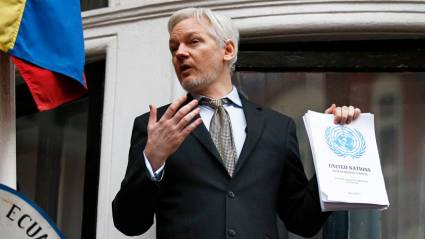
Assange on the balcony of the Embassy of Ecuador in London February 5, 2016 Author: Reuters Published: 04/11/2019 | 07:56 pm
Since its founding in 2006, the WikiLeaks organization has contributed to revealing some of the darkest activities carried out from the highest levels of political power in various countries.
Through the anonymous leaking of hundreds of thousands of documents, this international network of cyberactivists, founded by Julian Assange – arrested this Thursday in London – has revealed military, political and diplomatic secrets, generating notable scandals and denouncing unethical or unorthodox behavior within different power organizations.
Espionage, war crimes, political or diplomatic pressure, abuses of power or government malpractices have come to light thanks to the work of WikiLeaks.
We review the most important leaks carried out by this organization, some of which have completely changed the perception of several events in the recent history of the world
1 U.S. Army Manual for Guantánamo Bay Prison
In December 2007, WikiLeaks published a U.S. Army manual for soldiers guarding prisoners at the Guantánamo detention center.
The text sets out the “standard operating procedures” that apply to prisoners, including measures such as the use of dogs for intimidating purposes or restricting access to the compound to members of the International Committee of the Red Cross.
The increase in mental health problems or the number of suicides among prisoners is also reflected in the document.
2 Air raid on civilians in Baghdad
On April 5, 2010, Assange’s organization filtered a shocking video showing a group of civilians being attacked with powerful firearms from a U.S. AH-64 Apache helicopter on July 12, 2007.
Soldiers aboard the aircraft, whose often jovial conversations are heard in the leaked recording, fired on a group of Iraqis, killing 12 of them, including two Reuters news agency collaborators: Namir Noor-Eldeen and Saeed Chmagh.
3 The “Afghanistan war diary”
It was the largest leak of classified documents in U.S. military history to date, and is a true milestone in WikiLeaks’ reporting: On July 25, 2010, the organization headed by Assange published 90,000 pages, divided into more than 100 categories, containing various incidents and reports of the war in Afghanistan.
The documents revealed, for example, that the US concealed the brutal massacres committed by the Taliban (resulting in some 2,000 civilian casualties), or the cases of 195 unarmed people killed by coalition forces as a result of gunfire motivated by the fear that they were suicide bombers. The search for Osama Bin Laden is also extensively documented in these reports.

US soldiers in the vicinity of Kandahar airport Afghanistan 27 December 2001 Photo Earnie Grafton Reuters
Wikileaks simultaneously sent this information to the New York Times, the British Guardian and Der Spiegel in Germany.
4 The records of the war in Iraq
Wikileaks surpasses its feat just three months later: on October 22, 2010, it leaked almost 400,000 documents about the war in Iraq, the content of which horrifies the world.

U.S. soldiers take up positions on a Baghdad street on April 9, 2003: Photo Reuters
This massive leak includes a count of victims, prepared by the U.S. Army itself, which puts the death toll in Iraq at 109,032, and acknowledges that 60% of them are civilians. The documents also reveal several cases of US soldiers killing civilians at checkpoints.
Another scandalous aspect uncovered in this impressive consignment of documents is the finding that the US tolerated abuse, torture, rape and summary executions of civilians committed by allied Iraqi forces, which they supervised and trained.
5 The ‘cablegate’: documents of American diplomacy
On November 28, 2010, WikiLeaks once again shocked the world with the leakage of more than 250,000 messages from the U.S. State Department, revealing unpublished episodes from various trouble spots around the world, as well as highly relevant data that reveal a very considerable part of U.S. foreign policy, as well as its obsessions, its mechanisms and many of its sources.
This is one of the most profoundly important revelations carried out by WikiLeaks, insofar as it contributes to citizens’ understanding of the real way in which the US develops the dark side of its international relations.
These documents contain comments and reports prepared by different U.S. diplomacy officials, sometimes written in an especially frank language and referring to personalities from all over the world. They also reveal the contents of interviews and meetings at the highest level, and even uncover unknown activities directly related to espionage.
In some cases, the very nature of the expressions used in these messages truly endangered U.S. relations with some of its allies; at other times, they made some U.S. foreign policy strategies difficult, such as rapprochement with Russia or with certain Arab countries.
The documentation was sent from the WikiLeaks server to the newspapers El País (Spain), Le Monde (France), Der Spiegel (Germany), The Guardian (United Kingdom) and The New York Times (USA).
6 The Guantanamo Bay archives.
On 25 April 2011, WikiLeaks leaked nearly 800 secret Pentagon documents revealing that the US government used the Guantánamo detention center illegally to obtain information from its inmates, many of whom had no links to terrorism.
There were 4,759 pages dated between 2002 and 2009, signed by the highest commanders of the base’s Joint Task Force and addressed to the Department of Defense Southern Command in Miami. These included classified dossiers, interviews and internal memoirs, reflecting, for example, the fragile mental state of some detainees, such as a 14-year-old boy or an 89-year-old man.
The United States even admitted in those reports that 83 of the 779 inmates posed no risk to the security of the nation, and 77 others acknowledged that it is “unlikely” that they were a threat to the country or its allies. The U.S. Army itself estimated that approximately 20 percent of the prisoners had been arbitrarily taken to prison.
7 Detention policies at Guantánamo and Abu Ghraib
On October 24, 2012, WikiLeaks reveals abundant documentation – more than 100 reports – detailing the procedures used by U.S. military authorities with detainees in their custody in Abu Ghraib prisons (Iraq), and again in Guantánamo Bay (Cuba).

U.S. soldiers bring a detainee into the Guantanamo detention facility. June 10, 2008. Photo: Reuters
On the day this leak became effective, the United States was in the final stretch of the electoral campaign, with a view to the elections scheduled for November 6 of the same year, in which Barack Obama would be re-elected.
Assange, already imprisoned at the Ecuadorian embassy at the time, declared that these documents “show the anatomy of the detention monster created after September 11, the creation of a dark space in which law and rights do not exist, where people can be detained without a trace, at the will of the U.S. Department of Defense.
8 Espionage in Europe
In June 2015, Wikileaks publishes five reports from the US National Security Agency (NSA), based on intercepted communications from French ex-presidents Jacques Chirac and Nicolas Sarkozy, as well as then-President Francois Hollande.
The cyberactivists asserted that “the US has implemented a policy of economic espionage against France for a decade”, through mechanisms such as the “interception of all French corporate contracts and negotiations valued at more than 200 million dollars”.
Among the communications spied on by the US agency were discussions on the debt crisis in Greece (including the possibility of the Hellenic country leaving the European Union) or talks on the leadership of the Eurozone, as well as on the relations between Hollande’s government and that of German Chancellor Angela Merkel.
9 Espionage against Netanyahu, Berlusconi and Ban Ki-moon
Barely 7 months later, in February 2016, Wikileaks revealed new documents that revealed more espionage actions carried out by the NSA against world leaders. In this case, the spies were Israeli Prime Minister Benjamin Netanyahu, former Italian Prime Minister Silvio Berlusconi and then UN Secretary-General Ban Ki-moon.

Angela Merkel and former French President Nicolas Sarkozy. Photo: The New York Times
The U.S. agency conducted secret wiretaps at a meeting between Ban Ki-moon and Angela Merkel, which also appears in these reports. The documents also include a conversation between Netanyahu and Berlusconi and a private meeting between Berlusconi, Merkel and former French president Nicolas Sarkozy.
The NSA reports faithfully reproduce the content of these exchanges. Merkel and Ban talk about the fight against climate change; Netanyahu asks Berlusconi for help in dealing with the administration of US President Barack Obama; and Sarkozy warns the former Italian prime minister about the seriousness of the dangers facing his country’s banking system.
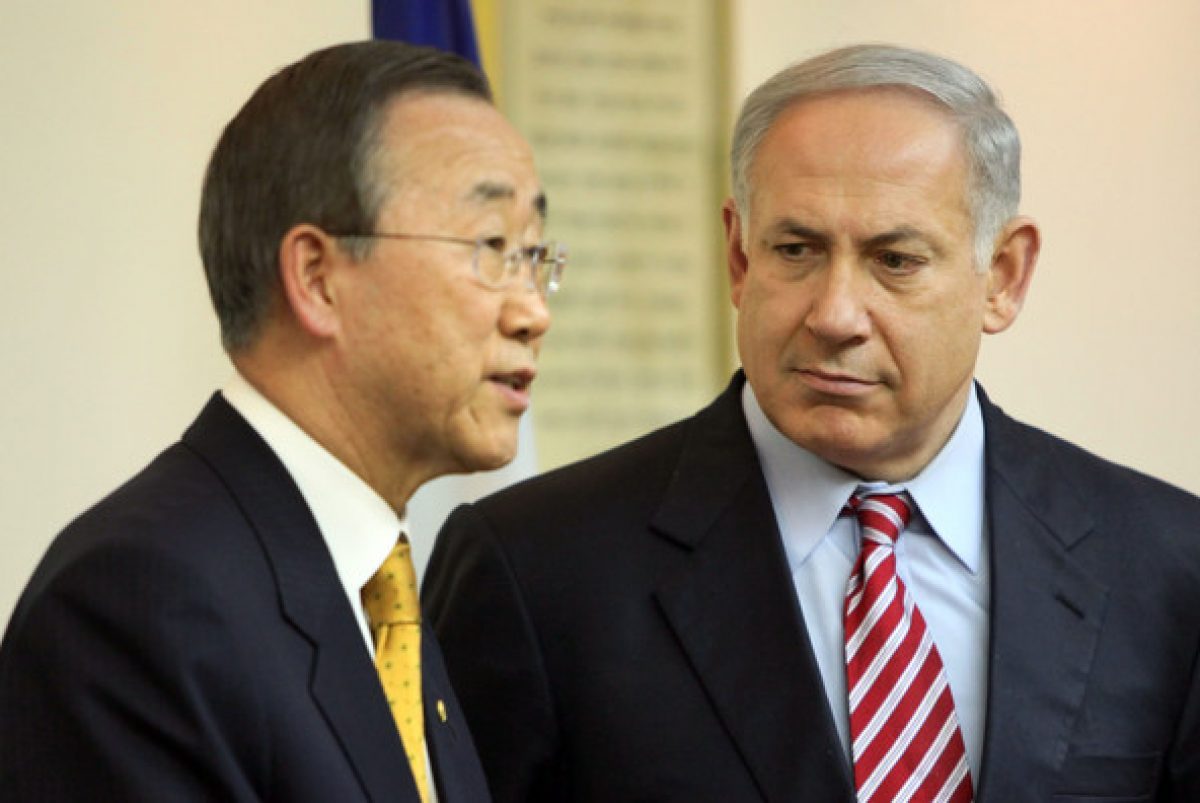
Israeli Prime Minister Benjamin Netanyahu and then UN Secretary-General Ban Ki-moon.
10 Hillary Clinton’s email
On March 16, 2016, she published a file with more than 30,000 e-mails received and sent by Hillary Clinton from her private server while serving as secretary of state. The documents cover the period from 30 June 2010 to 12 August 2014.

Hillary Clinton, former secretary of state during Barack Omaba’s term. Photo: USA Today
Among these leaks are 27,000 emails from the Democratic National Committee (CND), which uncovered issues as diverse and relevant as the maneuvers of various Party members or the supply of weapons for radicals in Syria, among many others.
The cyberactivists also made public some 50,000 emails from John Podesta, the head of Hillary Clinton’s presidential campaign, which uncovered a large amount of confidential information from the top of the Democratic Party, including campaign strategies, complete transcripts of speeches and some internal party disputes.
Published in Russia Today: April 11, 2019
Yoga for Sexuality

Yoga for Sexuality
Published: Friday 29 March 2019 | 10:14:58 pm.
The mind is a friend of that soul that has known how to conquer it.
Bhagavad Gita
By: Mileyda Menéndez Dávila
sentido@juventudrebelde.cu
A CubaNews translation.
Edited by Walter Lippmann.

According to the Journal of Sexual Medicine, many women report a significant increase in their level of sexual arousal and desire when practicing yoga Author: Taken from the Internet Published: 29/03/2019 | 10:18 pm
According to the Journal of Sexual Medicine, many women report a significant increase in their level of sexual arousal and desire when they practice yoga. Their orgasms are of higher quality and their relationships are enriched while increasing their self-esteem and assertiveness.
It is not magic, suggestion or isolated physiological effects: whoever spends a few minutes three times a week pampering the mind, body and spirit integrally, can recover elasticity and fluidity in movements, reduce fear and discomfort, be more alert to perceive love and enjoy pleasures without attachments or obsessions.
Yoga is a lifestyle within the reach of all people, whatever their gender identity, because it is cultural conditioning and not biological sex that leads to experiencing the erotic act as a task to fulfill or mere relief, attitudes that deprive it of its true essence, which is the exercise of a joyful corporeal and spiritual freedom.
There are hundreds of postures or asanas. They all combine strength and comfort, which helps to burn fat, release toxins, quiet the mind and improve the skin and figure. By acting on various body systems, they stabilize their functioning and channel the unconscious emotions retained in them.
In this ancient technique, the movements are serene and natural. It is convenient to keep your eyes closed and at all times the breathing must be conscious and deep. With effort and discipline, each exhalation can bring you closer to the ideal pose. Just try not to violate the limits of your body or feed more frustration or arrogance.
Follow Nature
To balance sexuality, various manuals suggest combining postures in which 15 seconds are enough for the kundalini energy, usually dormant at the base of the spine, to flow throughout the body. This tones the muscles, stimulates the endocrine system, clears the mind of rigid or repetitive thoughts (typical of stress) and increases the state of alertness and receptivity.
One of the recommended positions is Upavistha Konasana: sit with open legs and a straight back, and “walk” your hands on the floor so that the blood irrigates the entire pelvis and raises the level of excitement. You can also do Uttanasana and Paschimottanasana: the first is standing and the other sits; in both, you keep your legs closed and your back straight, and bend your body trying to touch your feet with your hands and knees with your head, as far as you go. If you do this consciously, you will feel an electrifying tickle in your spine that will keep you in good spirits for the rest of the day.
You can also exercise to use some postures during intercourse and observe your sensations. Very suggestive is the Supta Baddha Konasana or lying goddess: face up, join the soles of your feet, lower knees and leave your arms next to the body, palms up. Breathing brings the chin to the throat and separates the ribs from the hip. The Adho Mukha Svanasana or downward-facing dog (stand on hands and feet, elevated buttocks, straight legs) invigorates the body and helps to see things at a fun angle. You can “pedal” in place, if you like… that is a very attractive sight for your partner.
Other asanas improve sexual capacity: the chair, the cobra, the pigeon, the butterfly, the baby’s posture… all bring flexibility to the spine, hips, legs and abdomen. Fortunately, there are yoga schools in almost every province and Cuban books on the subject in libraries, as well as manuals and digital videos.
Some texts suggest combining poses with sounds (mantras) whose vibration is in tune with the neurovegetative system. For example, in the sphinx pose (pelvis, legs, abdomen and arms on the floor, chest elevated and front view) repeat the syllable “vam” and you will soon notice its beneficial effect.
Sexual yoga does not require much: an airy space, comfortable clothes, and a synthetic or vegetable fiber mat. If you are going to use music, it will help your equanimity. It can be done alone or as a couple, but it is important to reserve a moment of peace at the end (preferably meditating) before facing work, eating something or “using” energy sexually.
The plan is not to compete with anyone, but to improve skills to appreciate the good in life, including sex, and it still favors you if your choice is celibacy because your cells rejuvenate, healthy emotions and elevate the mood.
Yoga stimulates blood circulation, and where your blood goes, your energy goes. This charge of vitality is unique in each being and at the same time is “connected” with the entire universe, as shown by dozens of modern experiments. It is up to you to decide at every moment whether you are going to use it for creative, reproductive or recreational purposes.
Palestinian prisoners go on hunger strike against Israeli mistreatment

Palestinian prisoners go on hunger strike against Israeli mistreatment
The protest was seconded by thousands of Palestinian prisoners in various detention centres inside and outside the occupied territories.
Published: Wednesday 23 January 2019 | 09:09:46 pm.
Updated: Wednesday 23 January 2019 | 10:50:35 pm.
Author: Juventud Rebelde
digital@juventudrebelde.cu
A CubaNews translation.
Edited by Walter Lippmann.

Israeli military policemen violently burst into the cells and even used the dogs of prey against the defenceless prisoners. Author: Free Palestine Published: 23/01/2019 | 09:02 pm
Ramallah, January 23.- More than 1,200 Palestinian prisoners held in the Israeli high security prison of Ofer went on an indefinite hunger strike in protest against the aggressions and mistreatment of military police, aided by dogs of prey, during violent searches carried out in their cells.
The protest was seconded by thousands of other Palestinian prisoners in various detention centers inside and outside the occupied territories, Middle East Monitor reported.
Ofer prison is the only Israeli prison built in Palestinian territory, located near the town of Beitunia, from which it is separated by an imposing concrete wall, and only three kilometers from Ramallah, in the West Bank.
The prison is governed by its own law and the hunger strike is considered a transgression of the rules, which carries severe punishments, sources of the Resistance recalled.
Ofer prison houses about 1,200 Palestinian prisoners, including a large number of young people and minors.
According to the Palestinian prisoners’ rights group Addameer, there are about 5,500 Palestinian prisoners in Israeli prisons, including 230 children and 54 women. Of that number, 481 were held without trial under the pretext of an illegal practice known as “administrative detention”.
In all Israeli prisons tensions increased, as the prisoners solidarized with Ofer, and suspended their daily activities, even refusing to eat.
According to the Palestinian Prisoners Association, some 150 prisoners were injured when special forces of the Israeli military police stormed Ofer prison on Monday morning.
According to this organization, six prisoners suffered bone fractures, 40 were injured in the head and had to receive stitches, and several were injured as a result of the use of rubber projectiles and tear gas.
Cuba condemns aggressions
Meanwhile, at the United Nations, during the Security Council’s quarterly open debate, the Cuban representative, Ambassador Anayansi Rodríguez Camejo, reiterated her strong rejection of Israel’s use of disproportionate and indiscriminate force against Palestinian civilians in the occupied territories.
It also condemned the unilateral actions of the United States, such as the withdrawal of financial support for the United Nations Relief and Works Agency for Palestine Refugees in the Middle East, the repeated obstruction of that country so that the Security Council does not condemn the escalation of violence, the tragic events that have occurred in the Gaza Strip since 30 March 2018, and the establishment of its diplomatic representation in the city of Jerusalem, which only contribute to the worsening of the situation.
AMLO Practices what he preaches

AMLO Practices what he preaches
Published: Tuesday 25 December 2018 | 07:39:10 pm.
By Marina Menéndez Quintero
marina@juventudrebelde.cu
A CubaNews translation.
Edited by Walter Lippmann.
The new President of Mexico delivers… and makes the most of the time. He could be seen as the other side of social plundering, which in other Latin American countries means the return of the ultra reactionary and extremist right.
The Mayan train will touch every ruin of the ancestors, and will bring tourism, estimated in those areas at about ten million visitors, to each place. He is confident that it will help create new jobs.
His awareness of the need to mitigate the differences between the north and south of the country was also reflected in next year’s budget, which prioritizes the south-southeast as “an act of justice, because it has been the most abandoned region of the country and its time has come”.
He also thought of the workers and decreed a minimum wage increase of 16 percent, convinced that if there are no revenues there is no internal market or income. In addition, he said, people will earn a decent wage, and an historic debt will be settled with the worst paid workers.
The increase is 50 percent in the border areas with the United States, a difference that may be due to the desire that their nationals stay in Mexico and not emigrate to the neighboring nation.
Precisely, the most transcendent action of these first days, because of the repercussions it must have for his country and Central America, is perhaps the materialization of his approach to stop illegal migration, and the decision by his own citizens and those of neighboring countries to go to another country.
Five billion dollars will be dedicated in 2019 to productive projects in Central America. He has already presented the plan to the administration of U.S. President Donald Trump, who said he would analyze the project. Hopefully he will support it… and forgets the wall. Andres Manuel Lopez Obrador is also being consistent in this regard.
Certainly, the doors of social development may be opening for Mexico after being closed for dozens of years, including the recovery of an economy where the neoliberal model had almost reprivatized its main conquest, won by Lazaro Cardenas when he nationalized oil.
The announced creation of a National Guard is in the works and almost ready to be submitted to popular opinion. This body will henceforth be in charge of the security of all Mexico, and leave the army and the rest of the armed forces, for other types of orders.
In order to make sure that his mandate will be enough, AMLO, who insists that he will not lrun for president again, works 16 hours a day so that his term will be doubled and six years will produce twelve years’ worth of work completed, as he said just two days ago to journalists. But time is time, and in real life he only has a six-year term.
Knowing that whoever comes after him can upset everything again, he wants to have a Constituent Assembly and, in fact, has already issued decrees so that each vindicatory step that he is taking is written in ink and in the form of laws.
He is today the opposite side of the right-wing and neoliberal processes that feed on the Argentine population under Cambiemos and Mauricio Macri and, above all, on the hardships and vicissitudes that arelikely to fall on the people of Brazil when, on January 1, the intolerant and reactionary Jair Bolsonaro takes over.
Let’s hope that the Mexican opposition, respectful until today of the popular roots that demonstrated AMLO’s crushing triumph at the polls, does not trip him up or boycott him. And also that the mafias that up to now have profited from public money do not turn against him.
Let Andrés Manuel López Obrador do his job. And may he help our sister nation of Mexico get safely into 2024. That could be a good wish for Latin America on the coming New Year’s Eve.
Bolivia: An Example of Economic Stability

Bolivia: An Example of Economic Stability
Published: Thursday 17 January 2019 | 10:12:09 am
By Hedelberto López Blanch
hedelberto@opciones.cu
A CubaNews translation.
Edited by Walter Lippmann.
Who would have thought, 13 years ago, that with the arrival of indigenous president Evo Morales Ayma to the presidency of Bolivia, that this country, for the first time in its history, would begin a straight line period of political stability, economic impulse and social development that has benefited the vast majority of its inhabitants.
Skeptics and right-wing forces in Latin America still don’t want to understand, but as Evo recently stated, his country’s economic stability is an example for the world to follow.
During 2018, Bolivia consolidated its position as one of the countries in Latin America with the most advances in the economic-social sphere, after reaching a growth of 4.7 percent and a Gross Domestic Product (GDP) of 40 billion dollars.
It is extremely important that when aggressive neoliberal and privatization policies are imposed in Latin America, promoted from the United States with the backing of several international financial organizations, Bolivia’s Minister of Economy and Public Finances, Mario Guillén, says that the nationalization of natural resources has been the fundamental pillar to understand the success of his country’s economic model.
Guillén added that this model allowed the State to appropriate the economic surplus, whose resources are invested in the construction of a productive-based economy and redistributed through population bonuses, public investment, wage increases and cross-subsidies to eradicate poverty and reduce the gaps between rich and poor.
In this way, domestic demand was boosted, which in a context of international economic crisis of high volatility and uncertainty has become the main engine of economic growth.
And notice the relevance of the system adopted, since in 2005, four out of every ten people lived in extreme poverty, without satisfying their basic food needs, but today this index has reduced by half, that is, only two out of every ten people still live in these conditions.
When Evo took began of the first term in 2006, the characteristics in Bolivia were citizen political insecurity, with great poverty, lack of education and attention to the health of the people, while the economy suffered indiscriminate looting.
From that year on, a series of measures were taken to nationalize productive, mining and service companies and wealth, and a stage began to leave behind more than two centuries of exploitation by foreign governments and transnational companies with the consent of the Creole oligarchies.
Previously, its main energy products and public companies created by the 1952 revolution had been privatized or sold at auction prices. This process increased between 1985 and 2005 during the neoliberal governments. During that period, the State ceased to control 70 percent of the productive activity and its main industry, Yacimientos Petrolíficos Fiscales Bolivianos (YPFB), received royalties of only 18 percent from the transnationals.
By May 1, 2006, the hydrocarbon industry was nationalized and a retention policy was established for the sector, divided into 50 percent royalties, seven percent in recoverable profits from operating companies, YPFB, and payment of taxes and patents. In this way it was ensured that the State and the people obtained an income in the first six years of $12,424 million dollars, an average of 2,000 million dollars annually.
In addition, in these 13 years, the recovery of wealth and resources was promoted as an act of social, economic and political justice. This allowed poverty to be reduced and the family economy to be revitalized; a modernization of transportation was carried out with the launch of the longest cable car in the world. It has seven lines, 20 kilometers of travel and 125 million passengers transported since its inauguration, contributing additionally to the development of tourism.
One of the first tasks undertaken by the Plurinational State was to implement a program to eliminate the extreme ignorance of millions of Bolivians, with the help of Cuban and Venezuelan specialists. In 2010, UNESCO declared the country free of illiteracy.
There are many benefits and one of the main ones is that at the regional level Bolivia is no longer one of the poorest countries. The urban open unemployment rate fell substantially, from 8.1 percent in 2005 to 4.5 percent in 2017. GDP grew since 2006 at an average rate of 4.3 per cent, while social programmes were broad and varied.
The progress made by the Plurinational State in just 13 years is instructive. It would be prudent for other poor countries in Latin America to stop looking north and begin to adopt economic and social policies that help their citizens, as Bolivia has done.
Wedding Outfits Made in Cuba

Wedding Outfits Made in Cuba
A fourth night where the public filled the Cuba Pavilion
Posted: Saturday 24 November 2018 | 02:21:56 pm.
Updated: Saturday 24 November 2018 | 02:24:25 pm.
Author: Leyanis Infante Curbelo
leyanis@juventudrebelde.cu
A CubaNews translation.
Edited by Walter Lippmann.
This edition of Havana’s Fashion Week began its fourth night with the largest influx of people to date, and opened the Havana weekend with one of the most interesting parades that have been presented.
Functionality, contemporary nods to tradition, diversity of materials and styles, characterized the proposals of the day, which closed with a golden brooch to climb on the catwalk a collective collection of wedding dresses by more than 10 designers.
As a tribute to the Matanzas poet Carilda Oliver Labra, Ismael de la Caridad presented a series of textile designs in which the exaltation of female eroticism and sensuality were the central axis. The use of transparencies, and the color black characterized the sample.
Also focused on the feminine universe, the fashion house Salomé decided to break the moulds of the formal jacket-pants set to resize it in an aesthetic context of the 21st century, accompanied by Laura Lis’s jewellery.
Two other collections focused on women. The first one, completely textile, in charge of one of the foreign guests, ElietteLesuperbe, from Guadeloupe Islands. Her proposal was divided into three fundamental parts, each guided by the use of a color: gold, representing light; red, for passion, and white, for purity.
The second belonged to the Baeza family, with a long trajectory in the area of leather goods. This time they offered a series of bags, wallets and accessories, in different formats and for different occasions.
In the masculine sector the young Yunior Hierro was located this Friday, with a series of guayaberas that managed to combine heritage and modernity; Maya Sierra, with a set of woven pieces, and the trinitarian project TRIEL, with classic and utilitarian linen shirts. All with a common line, to approach the contemporaneity, taking as base concepts and traditional materials.
Undoubtedly the highlight of the night were the NOVIAS, a sort of range of aesthetic possibilities for this special moment. The public was able to appreciate a wide range of designs close to fantasy, classic, alternative, youthful, daring, but, above all, national.
These are the images of the parade, by Maykel Espinosa Rodríguez.
http://www.juventudrebelde.cu/cultura/2018-11-24/vestidas-de-novia-con-factura-nacional-fotos
Double Standards on Immigration

Double Standards on Immigration to the US.
Published: Monday, November 19, 2018 | 08:47:39 pm.
By Lázaro Fariñas

Translated and edited by Walter Lippmann for CubaNews.
Think about the comments made by the American extreme right and, therefore, the Miami anti-Cuban right, about the famous caravan of migrants approaching the southern border of the United States. They bring to my memory that verse of the poet Campoamor in which he says: “And it is that in the traitorous world/ there is neither truth nor lie, / everything is according to the color/ of the glass with which one looks”.
Remember. more or less two years ago, Cubans who had left Cuba legally and who were residing in different South American countries began to advance through Central America with the idea of arriving in the United States? In order to be able to take advantage of the famous Cuban Adjustment Act. The right-wing made statements about a supposed humanitarian crisis. Those Cubans were fleeing, according to them, from the “Cuban communist dictatorship”, and that those compatriots only had the desire to reach “lands of freedom” in order to find the famous American dream.
Very selectively, the same people who described Cubans in Central America as people who pursued the American dream, now accuse the migrants who approach the border with Mexico of being a gang of thieves, criminals, drug traffickers and the sick. They supposedly came exclusively with the idea of murdering, stealing and infecting the citizens of this country (the US). What do you think? A humanitarian crisis in one case and an invasion by criminals in the other.
That caravan is made up of those who have been coming for years, people who flee poverty in search of better living conditions. The constant stream of migrants has never stopped. The difference is that in these moments they have come together to make the journey in larger groups. Perhaps they hope to gain more publicity for their attempt to reach the United States. Hostility is what they have received, not a compassionate welcome like that of the Cubans two years ago, but a negative and demonized one.
Those people who arrive and those who for years have been arriving, come from countries where everything exists that, since the very day of the triumph of the Revolution, the US right-wing have asked of Cuba. These include a multiparty system, market economy, representative democracy, with elections every four years, freedom of the press, etc. And if all that exists in their countries and if by implementing it all problems are solved, we have to ask ourselves, why do they emigrate? Why do they abandon the paradise that should exist in their countries since their social, economic and political system is the one that, according to the right, must prevail in all nations so that progress, wealth and social development can exist?
Obviously, the fact is that there is a multi-party system does not solve anything, but it does create a lot of politicking, corruption and demagogy. Freedom of the press only guarantees that those who have money can control the media to defend their interests. Those who believe that the market should be allowed to regulate everything, if not they are dreaming, at least they are sleeping, since even in the most developed countries there are control mechanisms over it. Representative democracy has shown time and again that it does not represent anyone in the long run. Although, well, it does represent the sectors that in one way or another control power, be it the army, the oligarchy or the political parties.
The poor wretches who come in caravan for the United States were taken as an electoral campaign flag by the Republican right. The President got tired of scaring the voters, telling them that a real invasion of thugs was coming, with the idea of them going to the polls in support of the candidates of the Republican Party. So much so that, starting from election day itself, the man stopped talking about the imminent dangers represented by the arrival of the caravan. Even the army was mobilized to the border and there this part of the troops are waiting for the supposed unarmed invaders to arrive.
The control of a country’s borders is normal and it is a duty of the government. It is true that no one has the right to enter illegally into a nation that is not their own, but what should not be done is to politicize immigration and to let some in and not let others in, only because it suits them politically.
Even now, after the policy of dry feet, wet feet, has been abolished, Cubans are subject to the same treatment as the other peoples of Latin America, since there is still the famous Cuban Adjustment Act, which makes Cubans different and privileges us only for political reasons Why? Oh because, and we have to go back to poetry, “everything is according to the color of the glass with which one looks”.
Subscribe to Blog via Email
| M | T | W | T | F | S | S |
|---|---|---|---|---|---|---|
| 1 | ||||||
| 2 | 3 | 4 | 5 | 6 | 7 | 8 |
| 9 | 10 | 11 | 12 | 13 | 14 | 15 |
| 16 | 17 | 18 | 19 | 20 | 21 | 22 |
| 23 | 24 | 25 | 26 | 27 | 28 | |

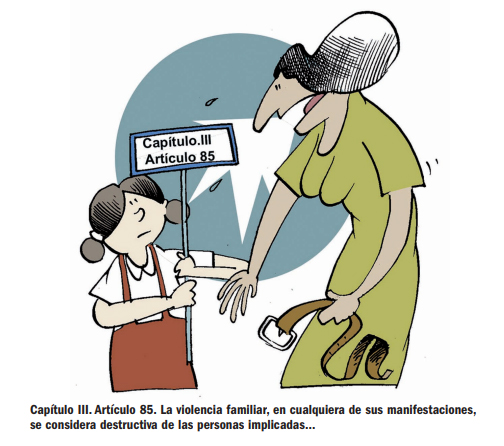



You must be logged in to post a comment.